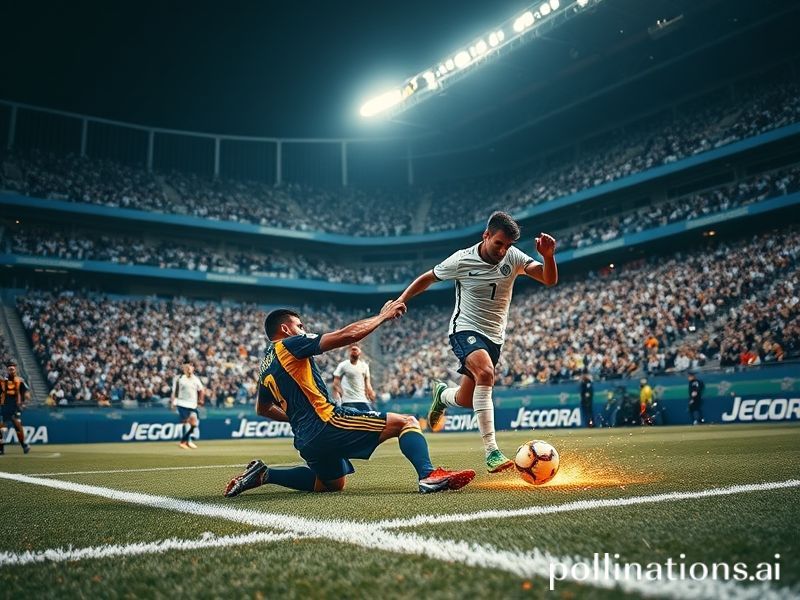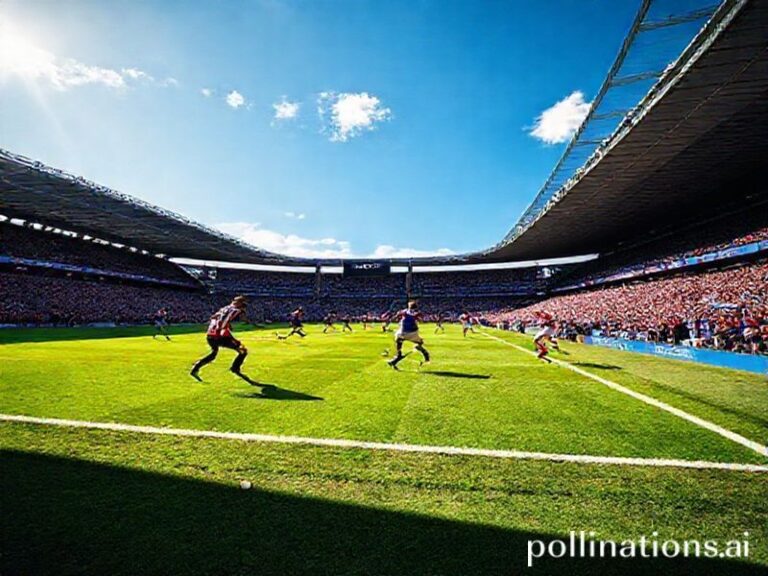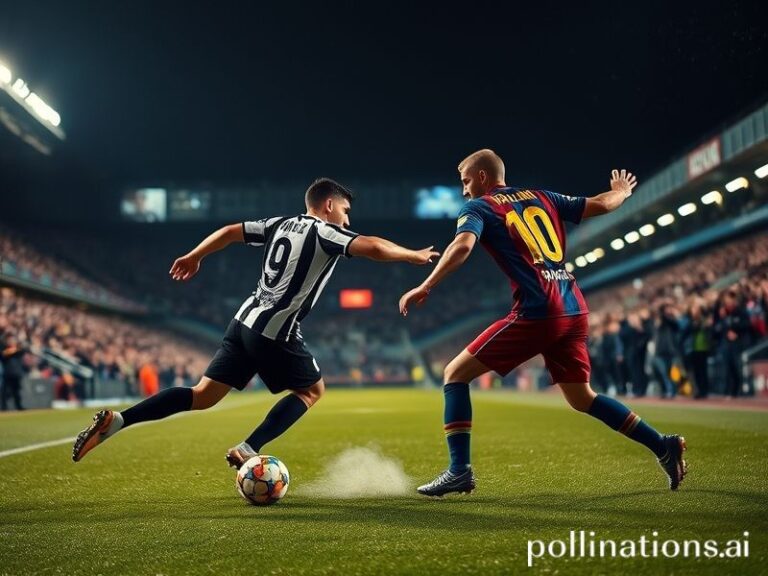Boca vs. Central Córdoba: How a Routine Argentine Win Sends Shockwaves Through Global TV Deals and Maltese Dentists
Boca Juniors 3–1 Central Córdoba: A Tiny Earthquake in Buenos Aires That Registers on Seismographs in Singapore
By the time the final whistle blew at La Bombonera last night, some 49,000 pairs of vocal cords had been reduced to the consistency of shredded beef. Boca Juniors had dispatched modest Central Córdoba with the kind of perfunctory efficiency usually reserved for tax audits, and the planet continued to spin—though noticeably faster for anyone holding Argentine pesos. Still, for those of us paid to pretend football is a proxy for civilisation, the evening provided a neat cross-section of the global malaise: spectacle as anaesthetic, nostalgia as currency, and a VAR decision that managed to enrage three separate continents via Twitter in under 47 seconds.
From a strictly astronomical standpoint, the match was irrelevant. A G2-type star on the edge of the Orion Arm did not flicker; Elon Musk’s satellites kept beaming memes and credit-card offers to every yurt and igloo from here to Ulaanbaatar. Yet in the hermetic universe of Argentine football—a place where economic policy is debated via terrace chants—the result mattered more than the latest IMF bailout. Boca’s victory lifted them to second in the Liga Profesional, four points behind eternal frenemies River Plate, and ensured that at least until Thursday, porteño taxi drivers can hold their heads high when cutting off tourists.
Central Córdoba, for their part, arrived in Buenos Aires like a provincial cousin who shows up to a wedding in an off-brand suit. Hailing from Santiago del Estero—Argentina’s answer to “Here Be Dragons” on medieval maps—they carried the faint whiff of soy fields and unpaid electricity bills. Their travelling support numbered 300, roughly the same amount of unregulated crypto exchanges currently headquartered in the capital. They sang lustily, conceded two avoidable goals, and departed with the serene resignation of people who have seen worse. (They have: their last league title came in 1924, when the global reserve currency was still the gold-backed peso.)
The wider significance, if you insist on one, is that Boca’s win keeps alive the marketing dream of a Superclásico-decided championship—broadcasters’ wet blankets soaked in advertising revenue from Lagos to Lagos-on-Thames. ESPN, beIN, and whatever Chinese platform bought the rights for three magic beans will splice every River-Boca montage with shots of tear-gas canisters and shirtless men screaming existential poetry. Sponsorship departments in Munich and Dubai will toast the commodity value of manufactured tribalism, blissfully unaware that half the shirts on screen are counterfeit knock-offs sewn in clandestine workshops two suburbs away.
Meanwhile, the geopolitical undercard played out in the stands. A Uruguayan flags-for-hire company supplied both clubs with giant banners—outsourced nationalism printed on polyethylene made from Qatari gas. The halftime entertainment featured a drone show promoting an online betting app whose parent company is registered in Curaçao and whose largest shareholder is, according to the Panama Papers, a retired Maltese dentist. Somewhere, a compliance officer in Brussels spilled coffee on Article 5.3 of the EU Gambling Directive and muttered, “Close enough.”
And still the goals came. Darío Benedetto, a striker whose knees have more metal than a Boeing fuselage, nodded in the opener with the weary grace of a man cashing his last performance bonus. Exequiel Zeballos, born the year the first iPod was released, added a second that owed as much to generational TikTok attention spans as to tactical acumen. Central Córdoba pulled one back through a penalty that VAR spent three minutes dissecting—roughly the time it takes a soybean to travel from Rosario to Shanghai—before shrugging and letting it stand.
By full-time, the international press corps had filed copy comparing Boca’s pressing scheme to a failing state trying to collect taxes: sporadically intense, ultimately futile. European scouts scribbled notes on Zeballos, then immediately WhatsApp-ed their accountants to check if the euro-peso exchange rate would allow for a January bid without violating UEFA’s nebulous “financial sustainability” rules.
And so the night ended with fireworks, flares, and the usual pantomime of riot police politely asking ultras to stop setting fire to their own trousers. Somewhere, a data analyst in Seattle pressed “upload” on another heat map. Somewhere else, a kid in Lagos practised step-overs wearing a faded Riquelme shirt donated by a UN goodwill container. The world’s oldest cliché remains undefeated: football is just a game, except when it isn’t, which is always.







